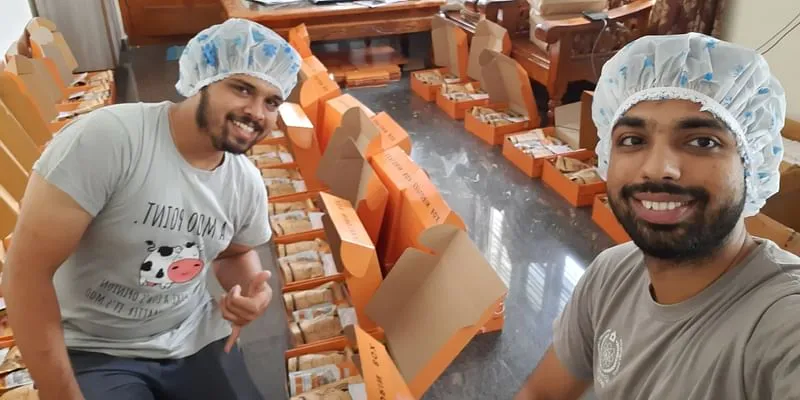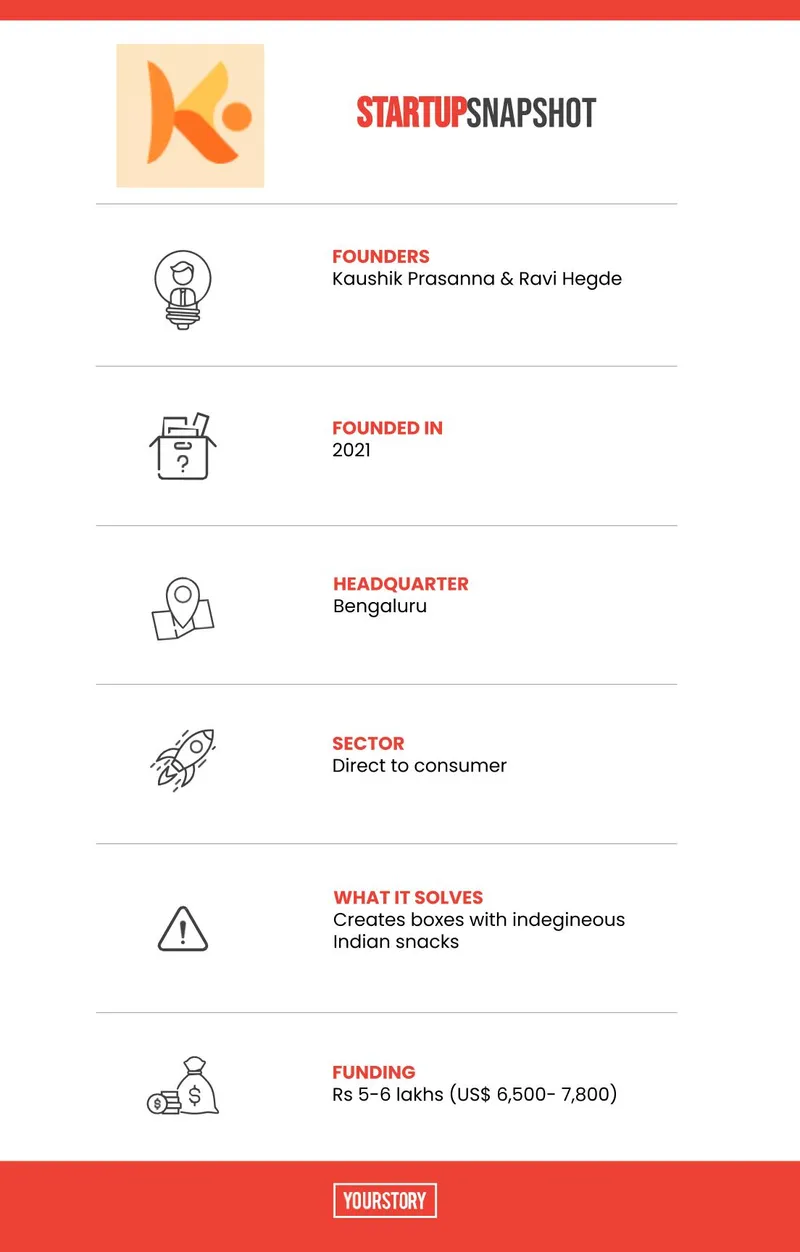Why this engineer turned social entrepreneur is betting on India’s indigenous snacks
Engineer turned social entrepreneur Kaushik Prasanna started Bengaluru-based Kaamik, which sells ethnic snack boxes with traditional sweets and savouries. It has so far sold at least 700 boxes – across Mumbai, Delhi and Bengaluru.
While the coronavirus pandemic unleashed a global crisis of unprecedented health, economic, and social uncertainties and anxiety, there were many who were trying to make a difference in their own way. One such example is that of 25-year-old Bengaluru-based computer engineer Kaushik Prasanna.
The pandemic-induced lockdowns saw thousands of out-of-work migrant workers hitchhike from metros to their hometowns - television visuals of the same made Kaushik want to do something about the desperate situation.
“I have always wanted to start something of my own before I got involved in the corporate space. The pandemic, though, really made me think about a lot of things. I came across many women whose husbands had lost their jobs and the women, despite being homemakers, were eager to work to make ends meet,” says Kaushik.

Kaushik (right) started FooDef Pvt Ltd with his college friend Ravi Hegde (left).
In 2020, Kaushik started FooDef Pvt Ltd with his college friend Ravi Hegde and “started selling handicrafts, clothes, and stitched masks. There were also a few folks making homemade snacks, which were very indigenous to Karnataka,” says Kaushik. Both founders had full time jobs at the time.
Seeing how popular homemade snacks were, in January 2021, the duo founded Kaamik, a digital platform selling snack boxes. They put in an initial investment of Rs 5-6 lakhs ($6,500-7,800) for the same.
The founders decided to deep dive into the food segment, and found many local sweets and snack makers who were extremely popular in their locality, but did not usually sell through food delivery aggregators or have an online presence.
The food pivot
“There are so many different kinds of snacks available across our country that even the locals are not aware about. That’s where I saw the opportunity to bring these snacks not only to other Indians but people across the world,” says Kaushik, who spent his growing up years living in multiple states like Gujarat, Sikkim, Nagaland, and more due to his father’s army background.
Kaushik feels this multi-cultural upbringing made him all the more inclined towards the idea of sticking to indigenous snacks.
With about 500 stock keeping units (SKUs) currently, the brand has sold at least 700 boxes till date. Every box contains 8-10 sweet and savoury snack items, which could be subscribed or bought as a standalone box from Kaamik’s website.

Credit: YourStory Design
“Our target consumers are usually families. That’s why we try to have an assortment of items in every box so there is something for everyone. We also try to bring in a theme every month and source food items accordingly,” says Kaushik.
The company, as far as possible, tries to stock non-perishable snacks, and sources these products from about 40 verified vendors, who they like to call artisans as the firm considers cooking to be an art.
Boxes and “artisans”
The “artisans” are sourced through word-of-mouth recommendations, social media pages, and when the firm receives enquiries. “We always call for samples and also try to check their cooking facilities as and when possible,” says Kaushik.
After the verification, the brand gives these vendors a bulk order for about 30-50 days, and purchases the products at discounted prices. These food items are then packed into boxes and shipped across India.
A single box retails for Rs 1,280 (US$ 16.7), and a major chunk of their demand comes from Delhi, Mumbai and Bengaluru. “A lot of orders also come from corporates, who have gifted these boxes to their employees or friends,” says Kaushik.
While the major focus of the firm was to run a subscription plan, they ran into a few issues with the model. India also historically has not been much of a subscription market, with many firms having found it difficult to make consumers stick to their subscription plans.
Thus, Kaushik and Ravi have decided to focus on the Western region, where the subscription market is supposedly more stable. “Also, there are not many sellers selling authentic Indian snacks, which many people from the Indian diaspora would want to have,” says Kaushik. The firm recently started a test run in the US.
The last two years have seen many new as well as traditional players emerge in the authentic food space. Kaamik currently competes with the likes of The State Plate, an ethnic food marketplace backed by Antler, Sweet Karam Coffee, an online store selling traditional coffees, and more.
Edited by Anju Narayanan









